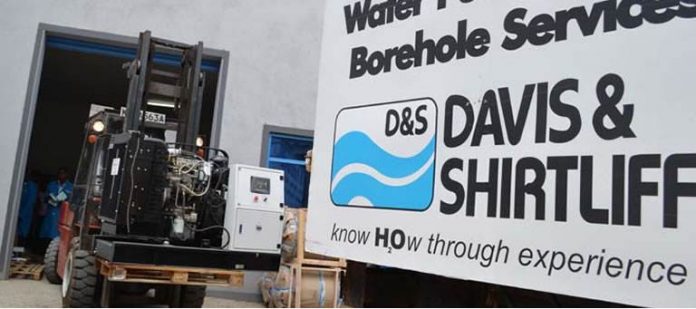
Ground Water Exploration and Solar Energy Key to Ending Drought – Davis & Shirtliff
Davis & Shirtliff has called for sound management of water and exploration of ground water to help small scale farmers beat impact of ravaging drought in the country.
The leading supplier of water and energy related equipment in the East Africa region said Kenya and the larger East Africa region has an abundance of ground water that can be accessed for agriculture through solar-pumping during this period of drought currently ravaging parts of the country and the region.
Davis & Shirtliff Group CEO George Mbugua said with technological developments, solar borehole pumping solutions have become much cheaper to implement and small-scale farmers, who account for up to 80% of food produced in the country, need to be educated on the benefits of mechanization of their farmlands through irrigation and solar pumping.
“Borehole drilling remains quite expensive and it is necessary to look into alternative options for small scale drilling to make groundwater pumping even more accessible to small scale farmers,” said Mbugua.
Smallholder farmers have also been tipped to consider making maximum use of less water currently at their disposal for agriculture by shifting away from traditional irrigation methods that are wasteful of water.
One of the technologies they can turn to is drip irrigation that ensures crops are fed with the precise amount of water that they need.
Davis & Shirtliff said it is keen to support the government and research institutions in developing initiatives to address challenges such as the extended drought that the region is currently facing, terming it both an opportunity and a moral responsibility for the private sector.
“It is only through a close collaborative relationship between the government, research institutions and the private sector that successful interventions can be developed, piloted and scaled throughout the region,” the group CEO added.
Currently, the company is working with a number of local and international universities to develop and test new innovations which it hopes will grow to commercial scale and be successfully brought to the market.
Davis & Shirtliff is banking on its in-depth understanding of what it takes to bring new products to commercial scale as well as an intimate knowledge of key customer groups
“Many new innovations sometimes fail to reach their target markets because the challenges of commercialization are not always considered during the innovation process in research institutions,” Mbugua said while speaking in Nairobi.
He added, “The ongoing drought situation is a major challenge but with an aligned and comprehensive strategy the effects of the drought can be alleviated.”


![Phishing and scams have increased in Africa. [Photo - Courtesy]](https://techtalk.africa/wp-content/uploads/2022/08/Phishing.jpg)
![Kaspersky researchers have found a new malicious campaign that developers need to be ware of. [Photo - Courtesy]](https://techtalk.africa/wp-content/uploads/2022/08/Kaspersky.jpg)
![LightWays is a fully enclosed, flexible ducting system ideal for protecting, segregating and managing fibre optic cables in the data centre environment. [Photo - Courtesy]](https://techtalk.africa/wp-content/uploads/2022/08/Siemon_LightWays.jpg)



